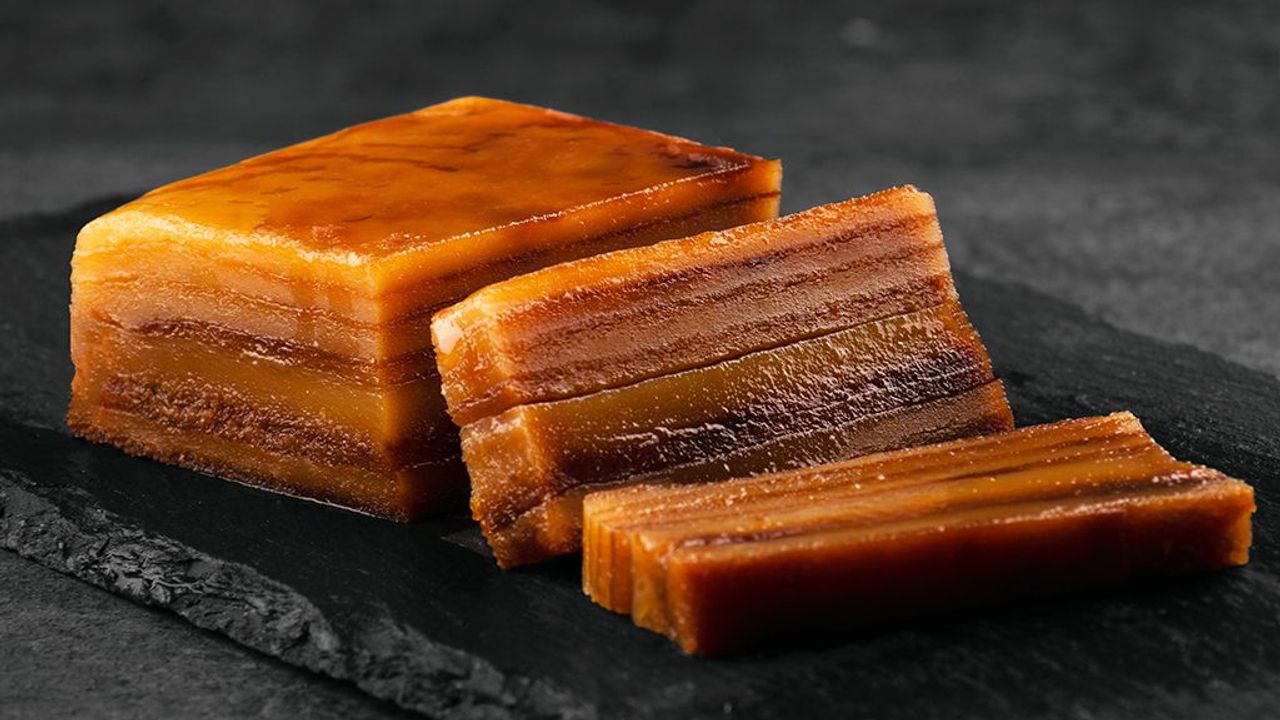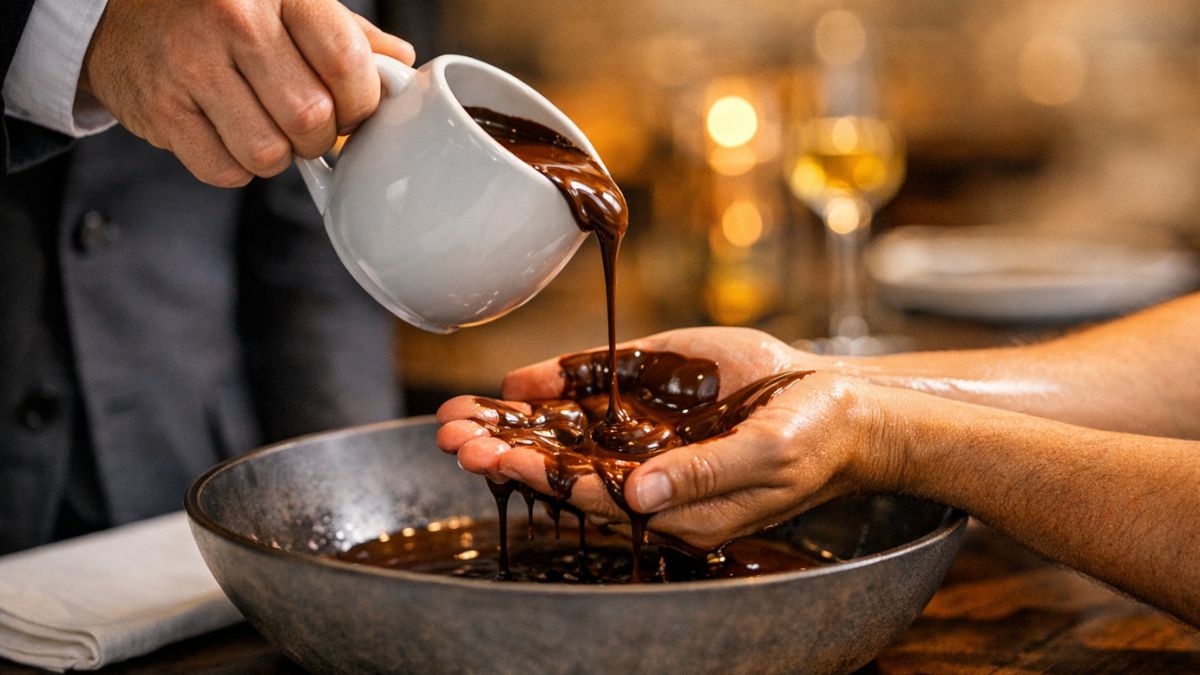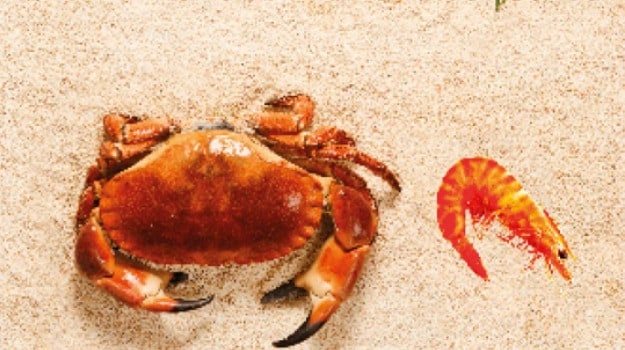I’ve always loved the odd bit of seashore foraging. If you know there are foods you love that are easy to get to, why wouldn’t you have a go at collecting them? I can’t think of anything nicer than eating food you’ve caught yourself.
Foraging is great for all ages and you don’t need much kit to get started. A good knife helps and a bag to store your goods in. Start by taking a walk along the coastline. If you’re armed with a pocket book to identify species, you’ll find the experience so much more satisfying.
Rock pools are great for finding the odd largish crab or little fish, but I always find that if you walk along the rocks, you’ll find a bit of sea spinach growing, or some samphire. It’s best to go foraging on an outgoing tide so everything is fresh and wet.
Avoid anywhere built-up or near harbours and marinas because of pollution. Don’t pick up anything if you don’t know what it is or anything dead.
One of my favourite catches is prawns. Last summer, my neighbour called me over – we have a little pontoon outside the front of our house in Brixham, Devon. He’d caught about 150 prawns and we sat on our steps and boiled them. We had a bottle of wine, looking out to sea, and wolfed them down in 20 minutes. Perfect.
Sea beets (also known as sea spinach)
You can find these on rocky shores. Boil them in a pan over a fire – they’re a bit like tough leeks – and naturally salty. A spoonful or two of ricotta is a delicious addition, along with a bit of olive oil or butter, and plenty of black pepper. Available all year round but best between April and July.
Clams and mussels
Wait until low tide when it should be easier to spot clam beds; rake along the shoreline and wait for them to come to the top. Boil them in a pan over your camp fire and add a couple of dashes of sherry, then throw in some finely chopped onion, coriander and a bay leaf.
Samphire
Look out for samphire on muddy flats around estuaries or tidal creeks. You can eat the young types now. Laver seaweed, the basis of Welsh laver bread, is another easy find. Boil it down then add a bit of seasoning, use olive oil and lemon juice.
Crabs
You can either hunt in rockpools or use a crabbing line – near a jetty is good. Boil in salted seawater over your beach fire for around 20 minutes. Smash them up and eat with crusty bread and mayonnaise, with your feet in the water.
Prawns
Find a jetty where there’s seaweed hanging down, get yourself a little net and just lie on the pontoon, scooping all the way along the weeds. Just boil them in some seawater or salt water. Lemon juice, mayonnaise and bread optional.
Recipe for steamed clams over seaweed
1. Dig a shallow hole a little smaller than the width of your grill. Line with stones and light a fire to make your beach barbecue.
2. Put a little water in a pan and heat over your barbecue.
3. Place a bunch of seaweed – bladderwrack (black in colour with pods) is one of the most plentiful – in the pan so it covers the water.
4. Lay your clams over the seaweed, ideally with some wild fennel if
it’s handy.
5. Season, cover with foil and let the clams steam for 8-10 minutes. (This is even tastier made with white fish but mackerel is good too if you can catch any.) Best served with crisp white wine and a spicy slaw.
Words by Rosie Ifould. Mitch Tonks owns the award-winning Rockfish and Seahorse seafood restaurants in Devon. www.mitchtonks.co.uk
Best of the fests
Can’t get down to the beach? Get your fill at these foodie festivals
River Cottage summer fair
This is a foodie haven on the Devon and Dorset border, and the River Cottage Summer Fair is your chance to experience it. Live music, theatre, talks and tours, and then there’s the food – a celebration of summer in all its (here’s hoping) sundrenched glory. rivercottage.net
Cooking skills for teens
Food loving is by no means the preserve of the middle-aged, as Root Camp demonstrates. These camps – in Devon, Ceredigion and beyond – are aimed at 14 to 21-year-olds, with all manner of farmyard and kitchen skills on the menu, along with film nights and midnight feasts. rootcamp.co.uk
Feast like a Scandi
There’s always a touch of magic to midsummer, but nowhere more so than under Scandinavian skies. If you can’t get there, the next best thing is to head to Harptree Court in Somerset for masterclasses in smorgasbords, Danish cakes and Swedish fika, with some great Scandi chefs. scandifeast.co.uk
By Dale Berning Sawa
Craft beer crawl
Need something to wash it down with? Sample Britains best microbreweries
Rail ale trail
Hop on a train and follow a rail ale trail: scenic branchlines with stations near great pubs. A hop-on, hop-off day return on the St Ives Bay Line in Cornwall is £4.20 and includes real ale pubs in Lelant Saltings, St Erth, Penzance and St Ives. Search online for a trail in your area. realaletrail.net
Craft beer crawl
For a twist on a traditional pub crawl, try the Bermondsey Beer Mile. This part of south London is home to a unique concentration of craft ale microbreweries that are open for tastings on Saturdays. Start at Fourpure at 11am for a pils and a game of ping pong. Then head to Partizan, for a refreshing Saison Iced Tea. Next is the Kernel (closes at 2pm) to sample a seasonal beer such as Damson London Sour. Then it’s Brew By Numbers for a Session IPA, followed by the Bottle Shop, which always has beers on draught. The last stop is the Anspach & Hobday/Bullfinch breweries (close at 6pm) for a port or two. Cheers!
By Rachel Dixon














